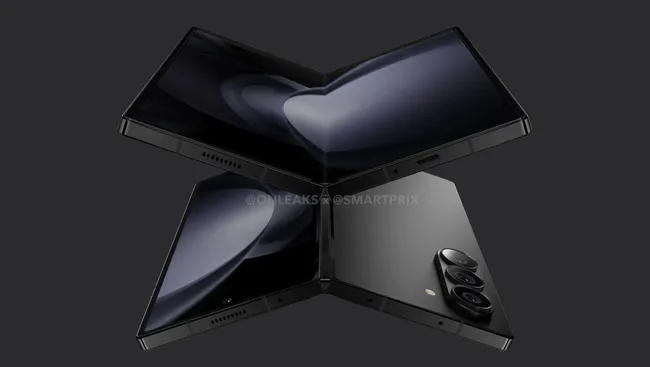The evolution of smartphones has taken a fascinating turn with the advent of foldable devices, and Samsung’s Galaxy Z Fold series has been at the forefront of this innovation. As anticipation builds for the Galaxy Z Fold 6, expectations are high for Samsung to leverage artificial intelligence (AI) to push the boundaries of what a foldable smartphone can achieve. While the current rumors and leaks suggest a promising device, incorporating AI-driven enhancements could truly differentiate the Galaxy Z Fold 6 in an increasingly competitive market.
Design and Build Quality
Foldable smartphones like the Galaxy Z Fold 6 represent a fusion of cutting-edge technology and sleek design. Samsung has consistently delivered on the build quality of its foldable devices, offering premium materials and a robust hinge mechanism that ensures durability and usability. The challenge lies in refining the design to enhance ergonomics and user experience, which AI can potentially address by learning user preferences and adapting interfaces dynamically.
Display Innovation
Central to the appeal of foldable phones is their flexible display technology, and the Galaxy Z Fold 6 is expected to feature advancements in this area. AI can play a pivotal role in optimizing display performance, such as adjusting brightness levels based on ambient lighting conditions or predicting user interactions to improve touch sensitivity. These enhancements would not only elevate usability but also contribute to the device’s overall efficiency and battery life management.
Performance and Efficiency
Powered by the latest chipset and coupled with ample RAM, the Galaxy Z Fold 6 is poised to deliver formidable performance. However, AI integration could further enhance efficiency by intelligently managing resources, prioritizing tasks, and optimizing power consumption based on usage patterns. This would result in smoother multitasking and extended battery life, addressing common concerns associated with foldable devices.
Camera and Imaging Capabilities

Foldable smartphones present unique challenges and opportunities in camera design. The Galaxy Z Fold 6 is expected to feature a sophisticated camera system, potentially leveraging AI for advanced image processing, augmented reality (AR) applications, and real-time scene optimization. AI-driven camera features could significantly improve image quality, enhance low-light performance, and introduce innovative shooting modes tailored for foldable form factors.
Software and User Experience
Samsung’s One UI, tailored for foldable devices, offers a cohesive and intuitive user experience. AI enhancements could personalize this experience further by predicting user preferences, offering context-aware suggestions, and streamlining navigation between different screen modes. Adaptive app layouts and multitasking optimizations driven by AI would make the Galaxy Z Fold 6 a versatile tool for productivity and entertainment alike.
Review Section
Pros:
- Innovative foldable design with premium build quality
- Potential for AI-driven display optimizations
- Powerful performance for multitasking and gaming
- Advanced camera capabilities with AI enhancements
- Enhanced user experience through AI-driven software optimizations
Cons:
- High price point compared to traditional smartphones
- Initial software stability and app compatibility concerns
In conclusion, the Samsung Galaxy Z Fold 6 holds tremendous promise as a flagship foldable device, poised to redefine smartphone innovation. By integrating AI across its design, display, performance, camera, and software, Samsung has the opportunity to create a truly groundbreaking device that sets new benchmarks in the foldable smartphone market. As we await its official unveiling, the potential of AI to transform the Galaxy Z Fold 6 into a standout device remains tantalizing.
















